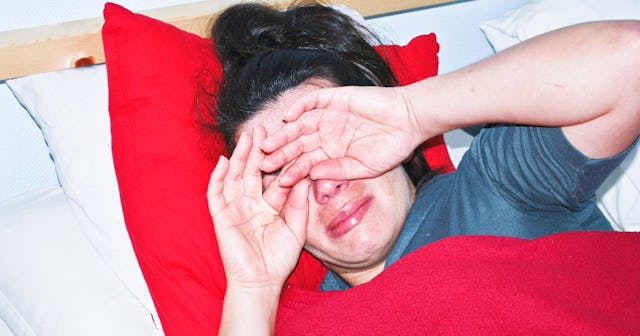Miscarriage Is Normal And Common, And We Need To Talk About That

When I first heard the term miscarriage as a little girl, I thought it was the saddest thing. At eight years old, my understanding of the term was that a woman would never get the opportunity to push a carriage. She missed her turn. This grasp of miscarriage stuck with me for a very long time, partly because nobody told me anything different. It was a topic that was never really talked about at home or even in school. The few times I heard whispers of someone experiencing a miscarriage, it sparked a kind of trepidation and anxiety filled with only negative connotations. Even the word miscarriage has a meaning to it in legal terms as in a miscarriage of justice where something terrible has happened to somebody owing to a failure by a court, judge or jury. Is it a surprise that I feared the word even though I knew so little about it?
Now, as a mother of three children and as a professional therapist who helps individuals and couples dealing with miscarriage, my understanding is much different. In fact, I have also experienced my own personal miscarriage. Today the topic of miscarriage is talked about increasingly more than ever before. Through social media, it is much more common for women to share their miscarriage experience; sometimes it is very raw, detailed and open.
I wish as a young girl that someone had explained to me how normal it was have a miscarriage. It turns out that our bodies were built to miscarry. In most cases, it is a normal and healthy mechanism in place in the female body to prevent what wasn’t destined to be. Miscarriage was nothing I needed to be afraid of or worry about. Yet the truth is that I did worry about it for a very long time. Had I more information as to what a miscarriage was and its implications, I might have been better able to deal with my fears.
So what is a miscarriage? A miscarriage is the loss of a pregnancy during the first 23 weeks. Most miscarriages occur in the first twelve weeks of pregnancy. This period of time, the first trimester, is considered early pregnancy. During this same first trimester, it is more common for women not to reveal their pregnancy. Some say it is superstition to ward off a miscarriage, but silence on the subject does make perfect sense as the pregnancy is concealed, thereby making it easier to conceal the miscarriage. However, what kind of sense does it really make? In my view, not a whole lot. I have found through my experience in the fertility field that openness on this topic often is the better, smoother and easier way to go for those going through it.
Carlo107/Getty
Statistics show that one in four pregnancies ends in miscarriage. It is very common. Perhaps if it was normalized more and people talked about it more, it wouldn’t be such a difficult and lonely experience to go through for women. What if instead, we saw it as a tie that binds us? What if we viewed it as an experience that is a very normal human physical, emotional, and sometimes spiritual phenomenon? We need to be careful that while we normalize the process, we don’t normalize the emotional impact.
Other countries have different and beautiful approaches to this subject. In Japan, for example, the people there practice a traditional ceremony where they pay honor and tribute to the miscarriage or loss. It’s called Mizuko kuyō, and it means “water child memorial.” It is a service for those who have had a stillbirth, miscarriage or abortion, and it’s an active way to mourn the unborn. There is incredible healing that can be gained from actively grieving a loss and giving it the attention it needs.
Today we are lucky to have practitioners who specialize in miscarriage. There are death doulas, midwives who specialize in miscarriage and mental health professionals with specialties in emotionally supporting those going through pregnancy loss. We in the western world have come around a great deal relating to the taboo on miscarriage since I was a little girl, but in my opinion, we could still go further.
This article was originally published on